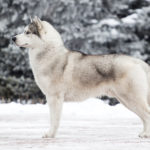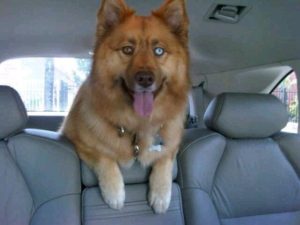The Nature of Dogs and Their Relationship with Humans
It’s a common scenario for dog owners: you’re trying to focus on work or relax, and your dog insists on being the center of your universe. Why does your dog demand constant attention? To answer this, let’s delve into the nature of dogs and their relationship with humans.
Dogs are inherently social creatures. Unlike cats, which can be solitary and independent, dogs thrive on companionship. This stems from their ancestry. Dogs evolved from wolves, which live in packs and rely on social structure and interaction. Over thousands of years, as dogs became domesticated, they formed a unique bond with humans, viewing us as their pack. This bond is at the heart of their need for attention.

Affection and Companionship
When a dog wants attention, it’s often a sign of affection. They seek our company because they genuinely enjoy being with us. Your dog doesn’t understand that you have other obligations. In their world, you are the most important thing, and they want to be close to you. This is why they follow you from room to room, sit on your lap, or bring you their favorite toy.
From my experience, this behavior is especially evident in breeds known for their loyalty, such as Golden Retrievers. They always wanted to be near you, especially during the initial months. This constant closeness, while sometimes overwhelming, reinforces the bond and makes training easier since they are always eager to please and be around you.
table of content ↑The Need for Stimulation
Another reason dogs seek attention is for stimulation. Dogs are intelligent animals that need mental and physical activity. If your dog is bored, they might resort to attention-seeking behaviors. This could be anything from nudging your hand to more disruptive actions like barking or chewing on furniture. They’re essentially saying, “I need something to do!”
I found that interactive toys and regular play sessions worked wonders for my friend’s Border Collie, Luna. Without sufficient stimulation, she would start to nip and bark excessively. Introducing puzzle toys and dedicating time for agility training sessions kept her mind occupied and significantly reduced her attention-seeking behaviors.
table of content ↑Separation Anxiety
Separation anxiety is another factor. Some dogs become very attached to their owners and experience distress when left alone. This anxiety can manifest as constant attention-seeking when you are around. If your dog exhibits signs of distress when you’re not home—such as destructive behavior or excessive barking—they might have separation anxiety. This is more common in certain breeds, particularly those that are known for their loyalty and attachment to humans, like Labrador Retrievers and German Shepherds.
I once had a case with German Shepherd who would get extremely anxious whenever owner left the house. To manage this, we gradually trained the dog to be comfortable with alone time, starting with a few minutes and gradually extending it. Providing him with a special toy that he only got when owner was away helped create a positive association with my absence.
table of content ↑Learned Behaviors and Positive Reinforcement
Dogs also learn from their experiences. If giving your dog attention when they nudge you or bark at you, you’re reinforcing that behavior. They learn that being pushy gets them what they want, so they keep doing it. This is a classic case of positive reinforcement.
In my early days of dog ownership, I made the mistake of always giving in to my Beagle, whenever she demanded attention. This only made her more persistent. Once I started ignoring her demands and only rewarding calm behavior, she gradually learned to be more patient and less demanding.
Health Issues and Attention-Seeking
Lastly, health issues can sometimes drive attention-seeking behavior. If your dog is suddenly more clingy than usual, it could be a sign that something is wrong. Pain or discomfort can make dogs more dependent on their owners. If you notice other changes in behavior or signs of illness, it’s worth consulting a vet.
Managing a Dog’s Attention-Seeking Behavior
So, how do you manage a dog that wants constant attention? The key is balance. Ensure your dog gets enough exercise and mental stimulation. Daily walks, playtime, and training sessions can help tire them out and reduce their need for constant attention. Also, create a routine. Dogs thrive on structure, and a predictable schedule can help them feel secure.
It’s also important to teach your dog to be comfortable being alone. Start by giving them short periods of alone time and gradually increase the duration. Provide them with toys or puzzles that can keep them occupied while you’re away.
Training is crucial. Teach your dog commands like “sit,” “stay,” and “down,” and use these commands to manage their behavior. Reward them for calm and independent behavior rather than for demanding attention.
In essence, your dog’s desire for constant attention is rooted in their nature as social, intelligent, and affectionate animals. By understanding these underlying reasons and addressing their needs, you can create a more balanced relationship where both you and your dog are happy.



